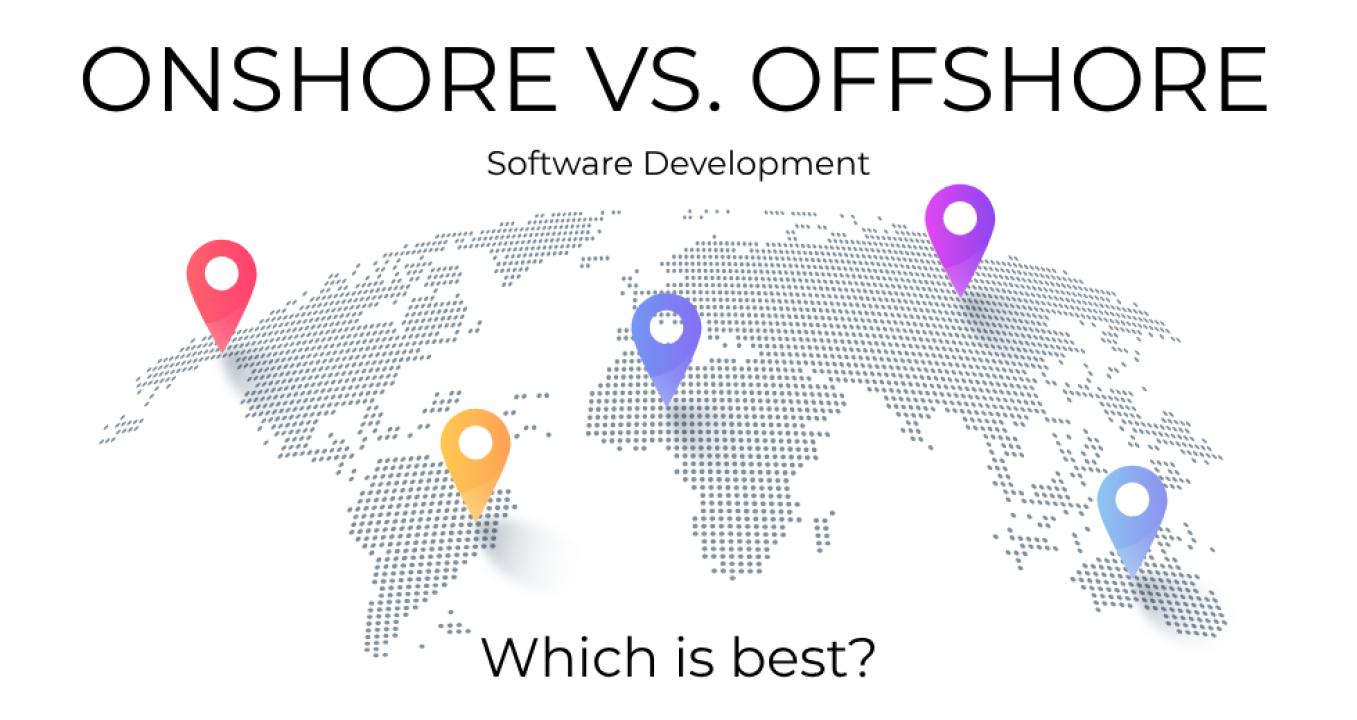Onshore Software Development
Onshore software development refers to engaging a development team within the same country as your company. This model offers several advantages:
Strong Communication: Shared time zones, language, and cultural similarities facilitate seamless communication and collaboration.
Cultural Alignment: Shared values and work ethics can lead to better understanding and project synergy.
Quick Turnaround: Immediate access to the team allows for faster decision-making and problem-solving.
Control and Oversight: Direct supervision and involvement in the development process.
IP Protection: Reduced risk of intellectual property leakage due to geographical proximity.
However, onshore development often comes with higher costs due to higher labor rates compared to other regions.
Offshore Software Development
Offshore software development involves outsourcing development to a team located in a different country. While it presents unique challenges, it also offers distinct benefits:
Cost-Effective: Lower labor costs in many countries can lead to significant savings.
Access to Talent: Tapping into a global talent pool allows for specialized skills and expertise.
24/7 Development: Overlapping time zones can enable continuous development and faster project completion.
Scalability: Easily adjust team size based on project needs.
On the downside, offshore development can introduce challenges such as:
Communication Barriers: Language differences and time zone disparities can hinder effective communication.
Quality Control: Ensuring consistent quality standards can require additional oversight.
IP Concerns: Protecting intellectual property might necessitate robust legal agreements.
You can overcome these issues with proper planning.
Which is Right for You?
The choice between onshore and offshore development depends on various factors:
Project Complexity: For highly complex projects requiring frequent face-to-face interaction, onshore development might be preferable.
Budget: If cost reduction is a primary concern, offshore development can be advantageous.
Timeline: For projects with tight deadlines, onshore development might be faster due to better communication.
Talent Availability: If specific skills are scarce locally, offshore development can provide access to a wider talent pool.
Ultimately, the best approach involves a careful evaluation of your project requirements, budget, and risk tolerance. In some cases, a hybrid model combining onshore and offshore teams can offer the best of both worlds.
Conclusion
The decision between onshore and offshore software development is a critical one that can significantly impact a project's success. While onshore development offers advantages like strong communication and control, the potential for cost savings and access to a global talent pool often makes offshore development a compelling option. By carefully evaluating factors such as project complexity, budget, timeline, and required skillsets, businesses can determine the best approach for their specific needs.
Maticz, a leading offshore software development company, excels in delivering top-tier software solutions. With a proven track record of success, Maticz offers a comprehensive range of services tailored to meet the unique requirements of each client. By partnering with Maticz, you can harness the benefits of offshore development while mitigating potential risks. Our expertise, combined with a commitment to quality and client satisfaction, makes the ideal choice for your software development needs.












